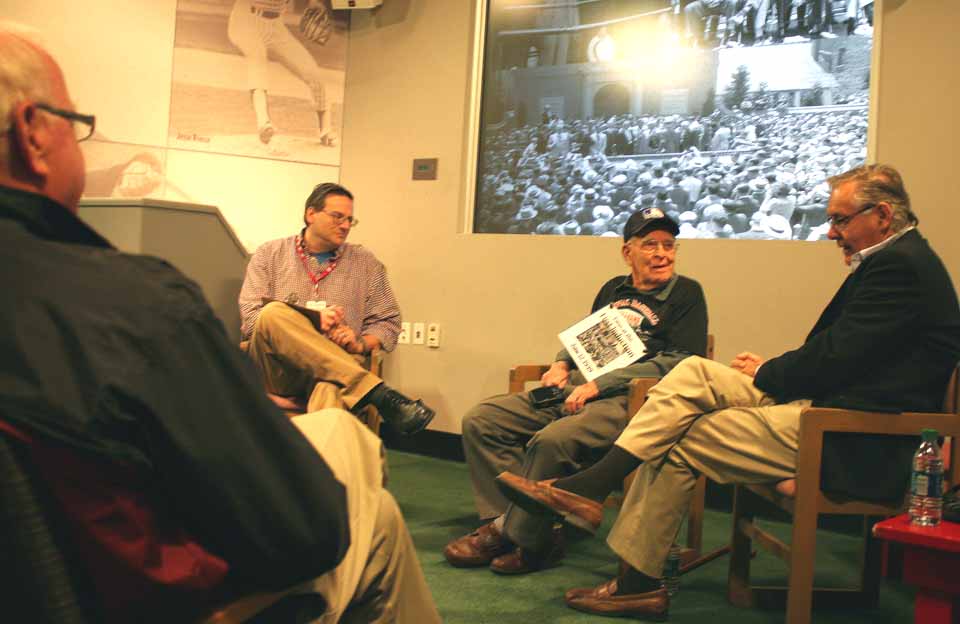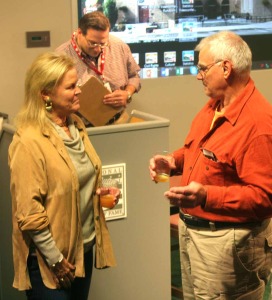Hall’s Prominence Surprised
Stephen Clark, Homer Osterhoudt

By JIM KEVLIN • allotsego.com

COOPERSTOWN – Few people realized the Baseball Hall of Fame’s potential when it was officially opened on June 12, 1939, 75 years ago this year.
Not Homer Osterhoudt, then a young man in his 20s standing in the lower left of photos taken that day of the throng in front of 25 Main. (Osterhoudt, now in his mid-90s, has attended every induction except three since then.)
At the time, Osterhoudt had spent the past two years on the construction crew of what he thought would be “a little museum on Main Street” and was somewhat taken aback that day by autograph seekers clamoring around Honus Wagner when he arrived at the passenger depot behind Bruce Hall’s.
A country boy, raised on a farm near Phoenix Mills, he’d never seen a crowd as large as the one that gathered to christen the Hall that day.
Nor Stephen C. Clark, the museum’s founder.
Curator Emeritus Ted Spencer, who appeared on a panel with Osterhoudt underway until 3 today in the Hall’s Bullpen Theater.
He recounted that, after retiring two years ago and finally finding time to delve at will into the Hall’s archives, he discovered a letter from Stephen Clark to attorney James Fenimore Cooper, the famous author’s descendant. “He (Clark) realized this thing had taken on some national importance,” said Spencer, and outlined plans for future expansion.
The panel, and a Q&A that preceded it, featuring Hall board chairman Jane Forbes Clark and its president, Jeff Idelson, were centerpieces of Community Day, where Otsego County residents are admitted for free into the Hall and its exhibits. Prior to their panel, Miss Clark and Idelson served apple cider and doughnuts to visitors.
The chairman recounted how her grandfather Stephen Clark’s undertaken had been buoyed by the belief, endorsed by the Mills Commission in 1908, that Abner Doubleday, the hero of Fort Sumter, had invented baseball in Cooperstown in 1839. That has since been disproven, she said.
That prompted some audience discussion of recent competing claims between Hoboken, N.J., and the vicinity of Columbia University in New York City. Idelson pointed out that Pittsfield, Mass., had recently staked a claim as well, but said in recent years scholars have concluded the game developed incrementally over centuries.

